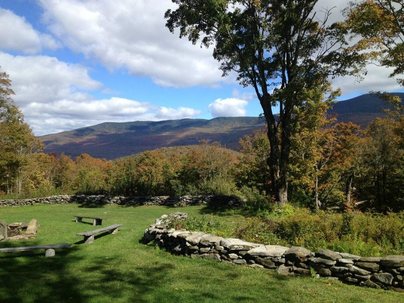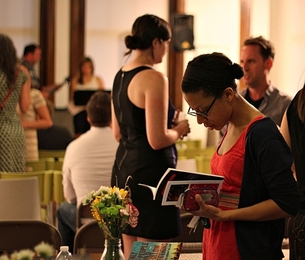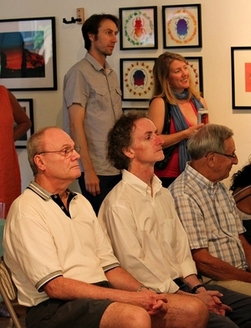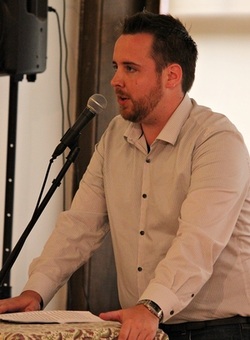 Outdoor Meeting Space at the Renegade Writers' Collective of Burlington, VT
Outdoor Meeting Space at the Renegade Writers' Collective of Burlington, VT 
The Renegade Writers’ Collective of Burlington, Vermont, which I founded in June 2013 along with writer Jessica Hendry Nelson, is one such writing center. As newcomers to Burlington in 2011, we found ourselves wanting to take writing classes on the flash essay, on the braided essay, on blending genre, and on developing longer works of fiction, but we were at a loss for options. The nearest place to take such a class was Boston, a three-hour drive from Burlington. We couldn’t even find a regular reading series at which to read our work or listen to work by others in what we knew to be a city dense with writers of staggering accomplishment. So we built a writing center that does both of those things with the ultimate goal of building literary citizenship among Vermonters and beyond.

1. A guaranteed spot in an appropriately-sized class led by a highly qualified writer/instructor with a proven publication, teaching, and/or editing history. This means you can trust the feedback you receive, and it eliminates the guesswork which often accompanies feedback from informal writing groups. Writers work closely with the instructor, honing their craft in a supportive, rigorous, and dedicated environment.
2. Classes that are exactly the type you'll find in an MFA program, with the same level of instruction (or better!). The bonus: Classes are affordable, open to anyone, and convenient to the average adult’s schedule with programming on nights and weekends. Classes at a writing center are the answer for people who don’t have two or three years and $40,000 to dedicate to an MFA program, but they’re also ideal for those who want to pursue postgraduate study.

4. Writing classes pay local instructors to provide local service, adding to the professional opportunities for educators and established writers and growing a locally-owned small business in a single stroke. In an era in which it is increasingly difficult to find consistent work as a writing instructor or as a writer in general, writing centers provide another way to make writing a “career.” It also helps public and community aspects of the literary arts keep up with other artistic disciplines by continually celebrating and strengthening its artistic “market share.”
5. Learning cannot stop. The minute you think you know it all, you’ve stopped being a writer. Creative writing blossoms when the writer is stimulated and exposed to new people, ideas, and ways of looking at words.
If you’re a writer and your community has a writing center, I encourage you to try a class, attend a reading or panel, and engage with the literary community that awaits you.

More information about the Renegade Writers' Collective is available online at:
www.renegadewritersvt.com
or via email at:
[email protected]
You can connect with Angela on Twitter at either @AngPalm or @RenegadeWriting


 RSS Feed
RSS Feed

